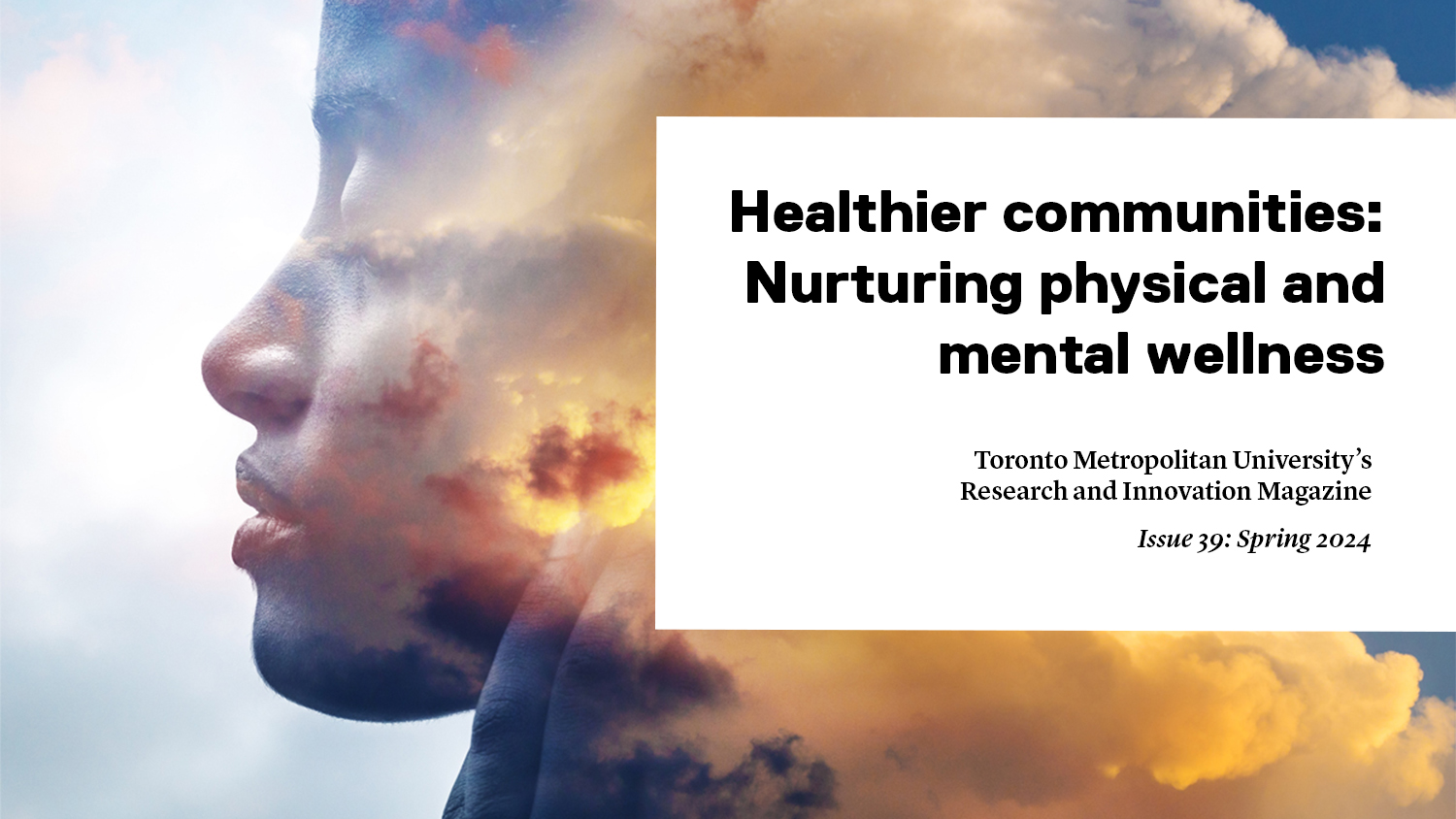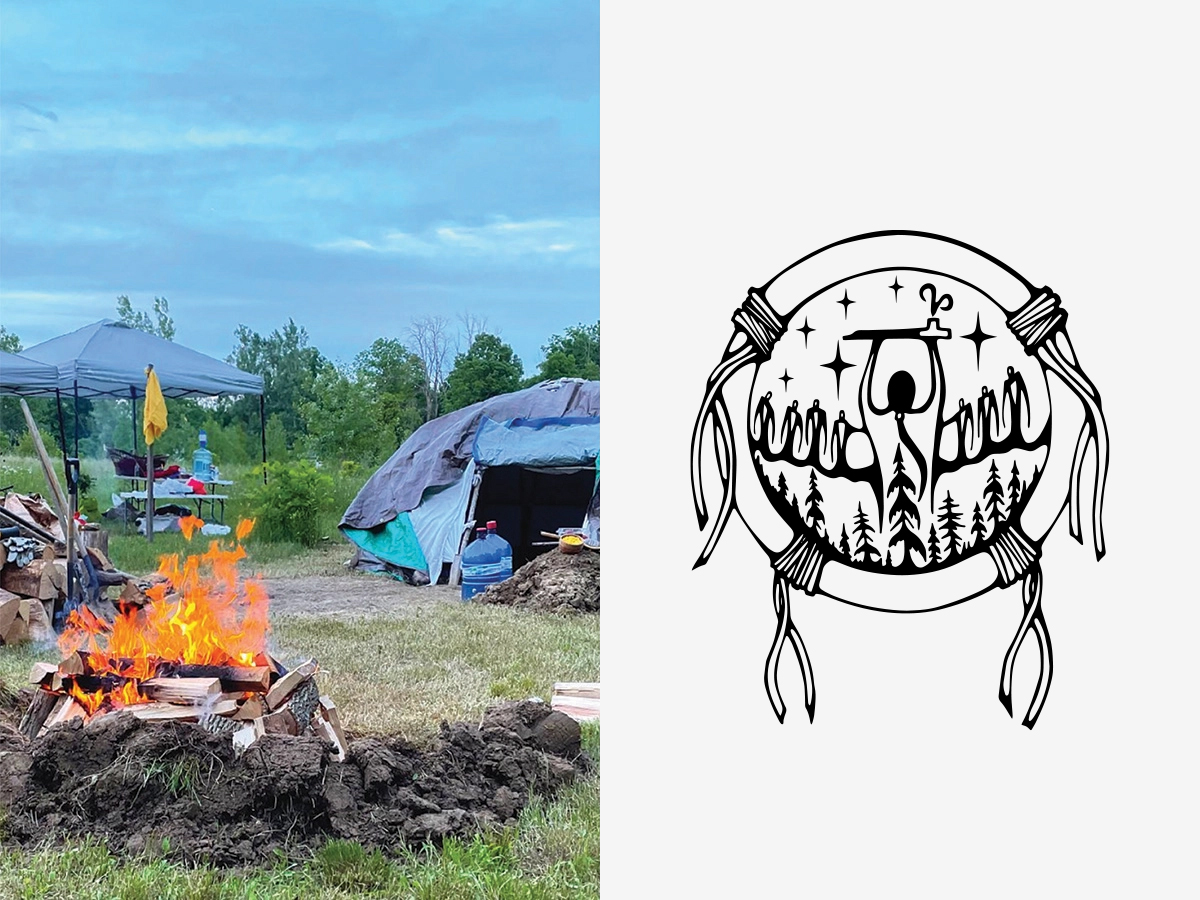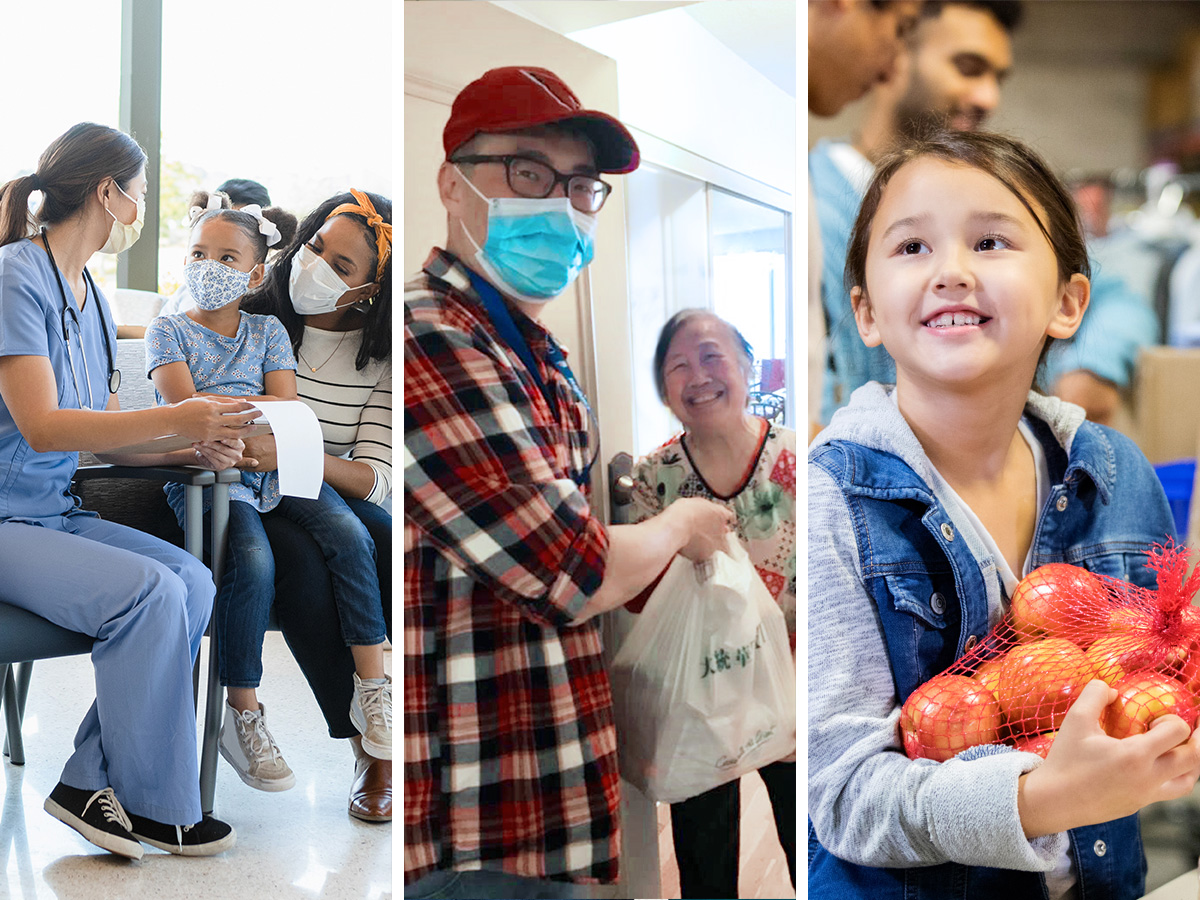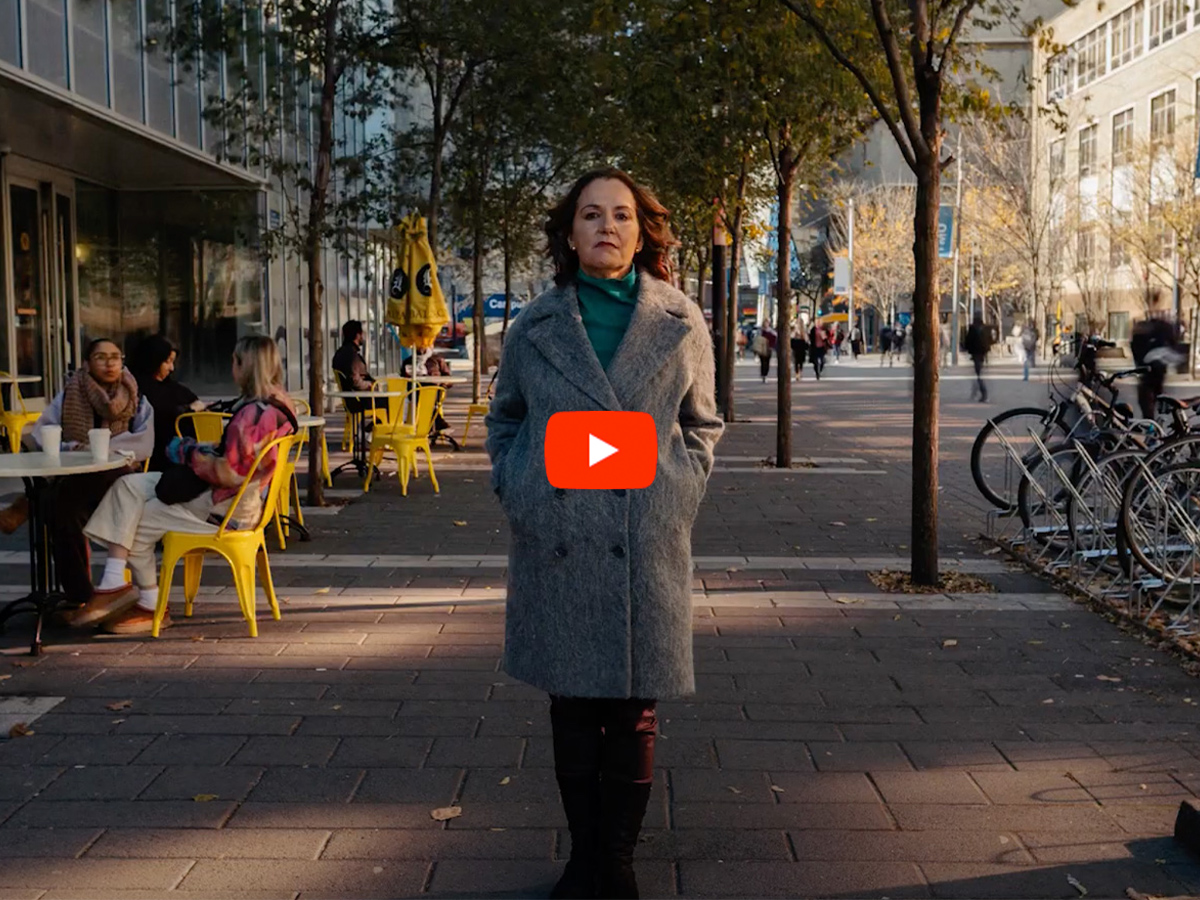Healthier communities: Nurturing physical and mental wellness
Innovation Issue 39: Spring 2024
Healthier communities: Nurturing physical and mental wellness

This publication is made possible, in part, with the support of the Research Support Fund.
Message from the Vice-President, Research and Innovation
As we prepare to open our new community-first, intentionally inclusive School of Medicine, we are pleased to feature the work of faculty from a range of research disciplines contributing to the health research ecosystem at TMU. You will find throughout this edition of Innovation that our researchers are identifying and addressing the gaps in health-care access, practice and delivery. They are developing digital tools, assessing interventions, crafting policies and delivering accessible, culturally safe care. Our faculty and student researchers, along with their collaborators, are breaking down barriers and helping to transform how we nurture community health.
Steven N. Liss, PhD
Vice-President, Research and Innovation
In Our Community

Delivering free therapy across Ontario
The Ontario Structured Psychotherapy (OSP) program offers free therapy services for adults facing depression and anxiety-related concerns across the province. Professor Martin Antony served as the clinical and training lead for this evidence-based program starting in January 2019.

Braiding together mental health approaches to support Indigenous youth
The programming of Finding Our Power Together, a national Indigenous-led non-profit aiming to empower youth and offering culturally-based programs and services across Canada, is informed by the research of Toronto Metropolitan University professor Nicole Ineese-Nash.

Lessons in listening: Improving pediatric care for racialized disabled children
A multi-faceted research and creative project led by Toronto Metropolitan University professor Fiona Moola is bringing new awareness to the unique experiences of racialized disabled children.
Intersection

AI-enhanced therapeutic virtual reality programs
The immersive nature of virtual reality programs, enhanced with artificial intelligence, is being leveraged to develop digital therapy tools that respond and adapt to users’ needs. Toronto Metropolitan University professor Naimul Khan is creating AI-enhanced VR tools that support mental health and respond to users’ physiological signals.

Identifying heart failure risk early with machine learning
A machine learning algorithm that can predict the potential for a patient to experience heart failure has been developed by professor Aziz Guergachi of the Ted Rogers School of Information Technology Management and an international team of research collaborators.
Policy and Perspective

Regional health governance for agile pandemic response
Pandemics such as COVID-19 do not confine themselves to national borders, and in COVID’s aftermath, government responses are under scrutiny. A TMU-led research team is considering how already existing regional governance frameworks could be leveraged to deliver coordinated and agile responses to future health crises.

Community-led health care through the pandemic and beyond
An innovative program meant to help stop the spread of COVID-19 has proven to be an effective model for providing accessible health care and supports to the residents of some of Ontario’s most at-risk communities. Toronto Metropolitan University professor Janet Lum explores the hyper-local approach to health care.
Meet the Expert

Quantifying the impact of singing lessons on children’s mental health
A music-based mental health intervention administered by teachers in a classroom setting has proven to increase subjective well-being among children. TMU math professor Francis Duah collaborates with psychology and education researchers to test group singing as a mental health intervention for elementary school-aged children.
Student Feature

A familiar voice: Developing an app with seniors to improve at-home care
A voice reminder app that uses familiar voices shows great potential as a practical, easy-to-use tool for seniors and family caregivers. Developed in collaboration with seniors and care providers, the app allows caregivers to record a variety of voice memos, including personalized mealtime reminders and important medical information.
CERC in Health Equity and Community Wellbeing
Meet the Canada Excellence Research Chair in Health Equity and Community Wellbeing
Professor Karen Soldatic is the TMU Canada Excellence Research Chair (CERC) in Health Equity and Community Wellbeing. Professor Soldatic uses a critical disability lens to expand social understandings of health and well-being in partnership with local communities, civil society and health-care providers.
Watch the video about the CERC in Health Equity and Community Wellbeing.

